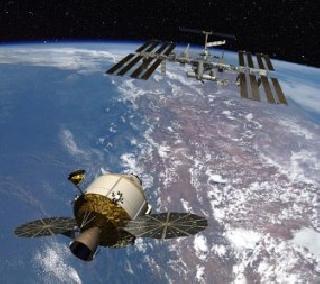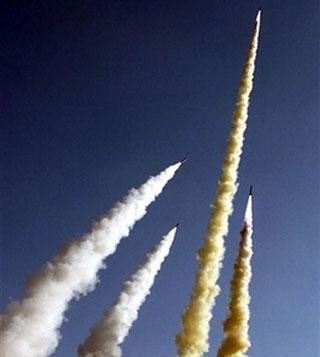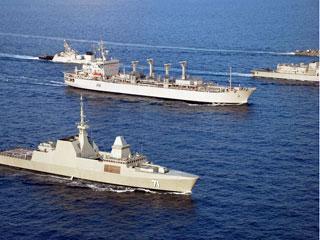
An artistic illustration of Orion approaching the International Space Station. A Lockheed Martin/NASA photo
DENVER (BNS): US space agency NASA, which is preparing to conduct an unmanned test flight of its Orion deep space capsule in 2014, has received the spacecraft's crew module structure last week.
Lockheed Martin, which is developing Orion, delivered the spacecraft's aluminum-alloy crew pressure module to NASA's Kennedy Space Center (KSC) in Florida on June 29.
"Completing the Orion EFT-1 (Exploration Flight Test) structure in New Orleans and delivering it to Kennedy Space Center is a tremendous accomplishment in the manufacturing of this deep space hardware," Cleon Lacefield, Lockheed Martin vice president and Orion programme manager, said.
"Now we have our eyes set on the Exploration Flight Test which will take this amasing spacecraft designed for crew significantly farther from Earth than any mission since Apollo."
Over the next year and a half, the crew module of the spacecraft will undergo final assembly, integration and testing at KSC in preparation for the Exploration Flight Test. Additional subsystems will be installed, including propulsion, thermal protection, environmental control, avionics, power, mechanisms, and landing and recovery systems, Lockheed, the prime contractor for the Orion programme, said.
The 2014 flight, called Exploration Flight Test-1 or EFT-1, will be loaded with a wide variety of instruments to evaluate how the spacecraft behaves during launch, in space and through the searing heat of reentry, NASA said.
During the mission, a Delta IV-Heavy rocket from United Launch Alliance will lift the spacecraft into orbit. Its second stage will remain attached to the capsule and will be fired to raise the Orion's orbit to 3,600 miles, about 15 times higher than the International Space Station.
The mission will last only a few hours, long enough to make two orbits before being sent plunging back into the atmosphere to test it at deep-space reentry speeds, the space agency said.
The EFT-1 flight will be NASA's first orbital flight test beyond low Earth orbit since the 1960s. The test will evaluate critical capabilities needed for safe deep-space exploration and reduce overall risk for Orion's first human-rated flight in 2017.
The Orion space capsule, which was originally designed as part of the NASA's Constellation programme to take astronauts to the Moon, would be used for deep space missions. It will take astronauts far beyond Earth, such as to an asteroid and Mars.
 Previous Article
Previous Article Next Article
Next Article













The Indian Air Force, in its flight trials evaluation report submitted before the Defence Ministry l..
view articleAn insight into the Medium Multi-Role Combat Aircraft competition...
view articleSky enthusiasts can now spot the International Space Station (ISS) commanded by Indian-American astr..
view article